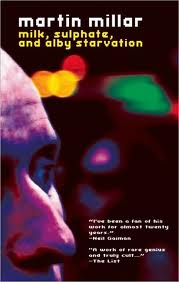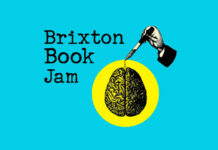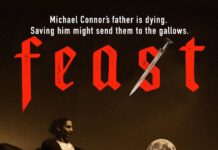Local author Howard Cunnell revisits classic Brixton novel Milk, Sulphate and Alby Starvation (1987) by Martin Millar.
Down in Brixton the youth are shambling through the streets wondering where their next drug is coming from. The sun is shining and nobody seems too troubled by anybody else and through the market music pulses out of many record shacks and the atmosphere is generally that of being quite a nice place to live.
 Alby Starvation is a paranoid, small-time amphetamine sulphate dealer and comic-book collector living in Brixton at the end of the 1980s. Thatcher still rules, there’s mass unemployment, but things aren’t that bad for the white squatters who populate Martin Millar’s first novel. If you want to spend your time like Alby programming rhythms into your drum machine or taping David Rodigan’s reggae show off the radio, or if you want to start up a band, like Alby’s friends Fran and Julie, then nobody’s really going to bother you.
Alby Starvation is a paranoid, small-time amphetamine sulphate dealer and comic-book collector living in Brixton at the end of the 1980s. Thatcher still rules, there’s mass unemployment, but things aren’t that bad for the white squatters who populate Martin Millar’s first novel. If you want to spend your time like Alby programming rhythms into your drum machine or taping David Rodigan’s reggae show off the radio, or if you want to start up a band, like Alby’s friends Fran and Julie, then nobody’s really going to bother you.
Life goes on and it’s really quite nice. Hair dye is easy to get, which is important, as Fran says, and there’s “music everywhere and a good cinema that doesn’t spend all its time showing meathead films, a women’s self-defence class, the dole office close by, poverty but isn’t everyone.”
Some readers might think Alby’s Brixton sounds like a pretty desolate place. Older readers of a certain sensibility might fondly remember and mourn for what has been lost.
This is a realist novel then, a snapshot of inner-city, druggy low-life back when Brixton was a safe haven for “lesbian feminists and punks and rastas and communists and any other filthy degenerate you care to name”?
Well, not really. Alby’s being pursued by a Brazilian-trained assassin hired by the Milk Marketing Board to kill him. Alby can’t get anybody to believe him and that just makes him more paranoid. This (very) short novel also features duelling Chinese video gamers, lots of kung-fu, a mad professor digging up Brixton’s pavements looking for the lost crown of Ethelred the Unready, Mildred the psychic nurse and a hamster called Happy.
I guess because it’s set in the inner-city, and some of the people in the book take drugs, Milk, Sulphate and Alby Starvation has been compared to Hubert Selby’s Last Exit to Brooklyn, and to Irvine Welsh’s Trainspotting. I don’t buy these comparisons. You would not call either of those books charming, and charm is the distinctive quality of Millar’s novel. Given that the central character is a misanthropic, paranoid speed-freak, that’s not an easy thing to pull off. Millar’s book really is a one-off.
At the time, and although it is not in any traditional sense a political book, the novel read like an act of resistance to the commodification of existence and the brutalities of Thatcherism. It celebrated tolerance and self-expression and playfulness. That felt revolutionary in 1987. It still does.
Milk, Sulphate and Alby Starvation by Martin Millar is available as an American import from Soft Skull Press. If you want to get hold of a copy, I’d recommend either Herne Hill Books or The Bookseller Crow on the Hill in Crystal Palace.
Howard Cunnell’s new novel, The Sea on Fire, is published by Picador priced £7.99.













